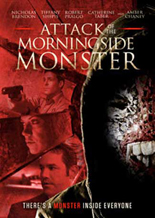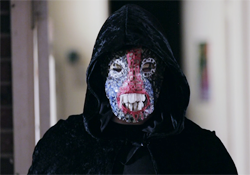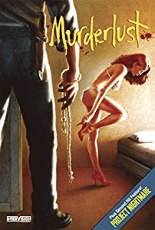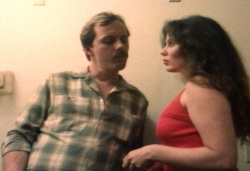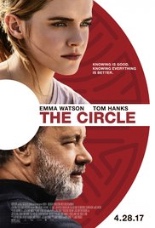
 James Ponsoldt’s The Circle is in no shape to exist as either a technological thriller or an Orwellian warning of waning privacy in today’s selfie-obsessed society. The film feels like an unfinished work, a lump of clay half-fashioned into, well, something, yet never placed in the kiln for firing.
James Ponsoldt’s The Circle is in no shape to exist as either a technological thriller or an Orwellian warning of waning privacy in today’s selfie-obsessed society. The film feels like an unfinished work, a lump of clay half-fashioned into, well, something, yet never placed in the kiln for firing.
Harry Potter graduate Emma Watson centers the picture as Mae Holland — or at least is supposed to, but the ingenue is stunningly miscast and working so far below her fighting class that her naive newcomer to Silicon Valley threatens to float away with any sudden gust. Escaping the number-not-a-name existence of a corporate cubicle farm, Mae lands a customer-support gig at The Circle, clearly a stand-in for both Google and Apple, with American treasure Tom Hanks (Sully) as Eamon Bailey, its ersatz Steve Jobs. With a campus that boasts such amenities as yoga classes, Beck concerts and, um, live improv, The Circle stands as the workplace among every self-aggrandizing millennial, and its gadgets are as omnipresent in their lives as underpants.
 Bailey’s latest baby is SeeChange, all-seeing cameras embedded in sleek spheres the size of cat’s-eye marbles; because of their portability and line of camouflaged colors, SeeChange cams are ideal for global “accountability.” Mae becomes something of a cause célèbre when she agrees to wear one and live a life of a broadband-broadcast transparency 24/7 (with three-minute breaks to heed nature’s call). Then Bailey releases software that allows SeeChange users to find anyone anywhere in the world in the matter of minutes — crowd-sourced bounty hunting, if you will. Raise your hand if you think Very Bad Things will come of this.
Bailey’s latest baby is SeeChange, all-seeing cameras embedded in sleek spheres the size of cat’s-eye marbles; because of their portability and line of camouflaged colors, SeeChange cams are ideal for global “accountability.” Mae becomes something of a cause célèbre when she agrees to wear one and live a life of a broadband-broadcast transparency 24/7 (with three-minute breaks to heed nature’s call). Then Bailey releases software that allows SeeChange users to find anyone anywhere in the world in the matter of minutes — crowd-sourced bounty hunting, if you will. Raise your hand if you think Very Bad Things will come of this.
Indeed, they do — both in the movie and, more to the point, to it. Pardon the pun, but The Circle’s better-watch-out message strikes one as rather square. As shiny as Mae’s environs and Ponsoldt’s film are, its clarion call about good technology’s capacity to serve evil ends is older than the dial-up modem — just ask the prehistoric apes bludgeoned by that newfangled bone — so predictability is hardwired into the plot. Reliable sources tell me Dave Eggers’ same-named 2013 novel (on which the film is based) carried a satiric edge; if so, that has been stripped in the story’s transition from page to screen, and Eggers himself shares the blame, as he shares scripting duties with director Ponsoldt.
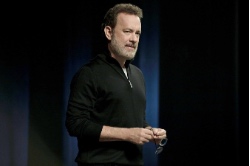 In past films — Smashed, The End of the Tour and especially The Spectacular Now — Ponsoldt demonstrated an assured deftness for balancing the alkaline and the acidic, which makes the deafness of tone displayed here all the more worrisome. His knack for guiding great performances in absentia, undeniable talents come off undeniably poor, with Watson lacking the gravitas — or likability — to function as the film’s anchor. As reliable an actor as Hanks is, villainous roles are not his strong suit. (There is a reason Jimmy Stewart avoided them, Tom.)
In past films — Smashed, The End of the Tour and especially The Spectacular Now — Ponsoldt demonstrated an assured deftness for balancing the alkaline and the acidic, which makes the deafness of tone displayed here all the more worrisome. His knack for guiding great performances in absentia, undeniable talents come off undeniably poor, with Watson lacking the gravitas — or likability — to function as the film’s anchor. As reliable an actor as Hanks is, villainous roles are not his strong suit. (There is a reason Jimmy Stewart avoided them, Tom.)
No actor is worse than Ellar Coltrane (the boy of Boyhood), whose childhood pal of Mae’s cannot deliver even the simplest dialogue (“Bye”) with authenticity. No actor is luckier than John Boyega (Star Wars: The Force Awakens), who is given nothing of value to do — one of the movie’s many introduced-then-discarded elements. And no actor suffers more embarrassment than Karen Gillan (In a Valley of Violence), whose Circle-exec character is under such immense stress that she appears increasingly pale ’n’ frail, bringing to mind An American Werewolf in London’s ghoulish running gag of an ever-decomposing Griffin Dunne; too bad Ponsoldt and Eggers are not aiming for laughs, but paranoia … and missing by a cringeworthy mile. —Rod Lott

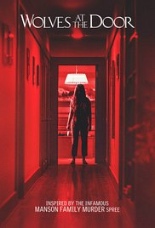
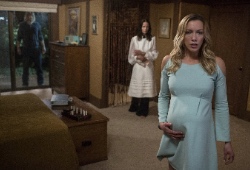
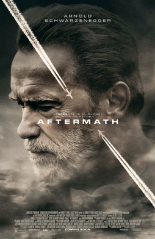
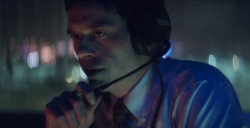 But every tragedy needs a villain’s face, and Roman is intent on hunting Jake down to confront him and demand the apology he has received from no one. Meanwhile, the weight of reality bears heavily on Jake’s shoulders, threatening to tear his family asunder as well. (Perennial
But every tragedy needs a villain’s face, and Roman is intent on hunting Jake down to confront him and demand the apology he has received from no one. Meanwhile, the weight of reality bears heavily on Jake’s shoulders, threatening to tear his family asunder as well. (Perennial 